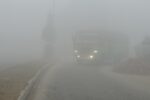KATHMANDU: The frequent contradictory results in the tests conducted as rapid diagnostic test (RDT) and polymerase chain reaction(PCR) tests have often put many people confused especially after the Udayapur mosque incident.
The government has sped up in conducting RDT as the fastest means of identifying the corona infected people. The tests mainly focused on the foreign returnees and their close contacts so far have borne the desired impact for the government as the tests are sped up.
On Friday, while giving instructions to the Ministers and members of the High-Level Committee to ensure that at least 100 thousand people get tested within a week from now, but Bhulke’s incident has made the public less assured about the quality of the tests conducted in haste.
Ranjan Poudel of Pepsicola, Kathmandu told Khabarhub that after he heard about the reversed result of the Bhulke mosque, he has become restless.
A rapid test was conducted on 12 Indians and 4 Nepalis hiding in the mosque at Bhulke, Udayapur on Tuesday. Their result was negative. However, skeptic about the result, when the swab was collected from them and sent for PCR test all 12 were found corona positive. Another PCR test conducted on them also turned corona positive.
“How to feel assured when the tests result found negative in rapid test turn positive?” Ranjan wondered, “how to believe that the negative result found in the rapid tests of Sun City Colony were authentic and PCR tests would also bear negative results?”
“It can reverse as in Udayapur case,” he spoke skeptically and demanded that together with rapid tests more PCR tests should be conducted and more labs should be prepared for that.
Experts opine that the rapid test can merely identify whether the antibody to fight against the coronavirus is prepared or not.
“The body of infected person prepares Immunoglobulin M (igm) antibody in 2 to 3 days after infection; and then after two weeks when igM disappears, the body prepares Immunoglobulin G(igG) antibody,” the experts say. So, according to them if the test shows igM positive, it means a recent coronavirus infection whereas igG positive denotes the coronavirus infection is healed.
According to them, as the igG antibody remains in the body for a long time even after defeating coronavirus, the rapid tests may show positive but PCR test result comes negative.
However, the medics are dumbfounded at the rapid test negative result of the Jamatis in the mosque who had reached there nearly one month ago.









Comment